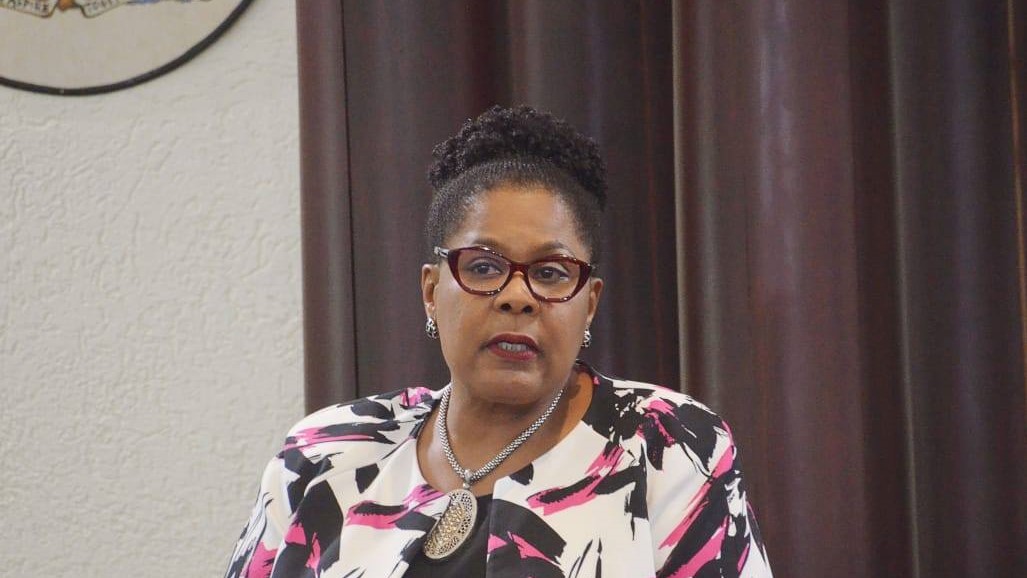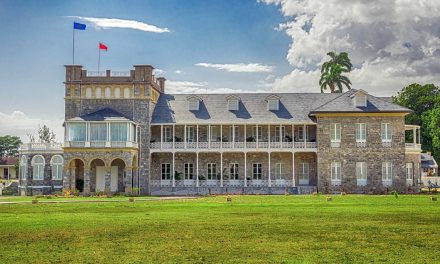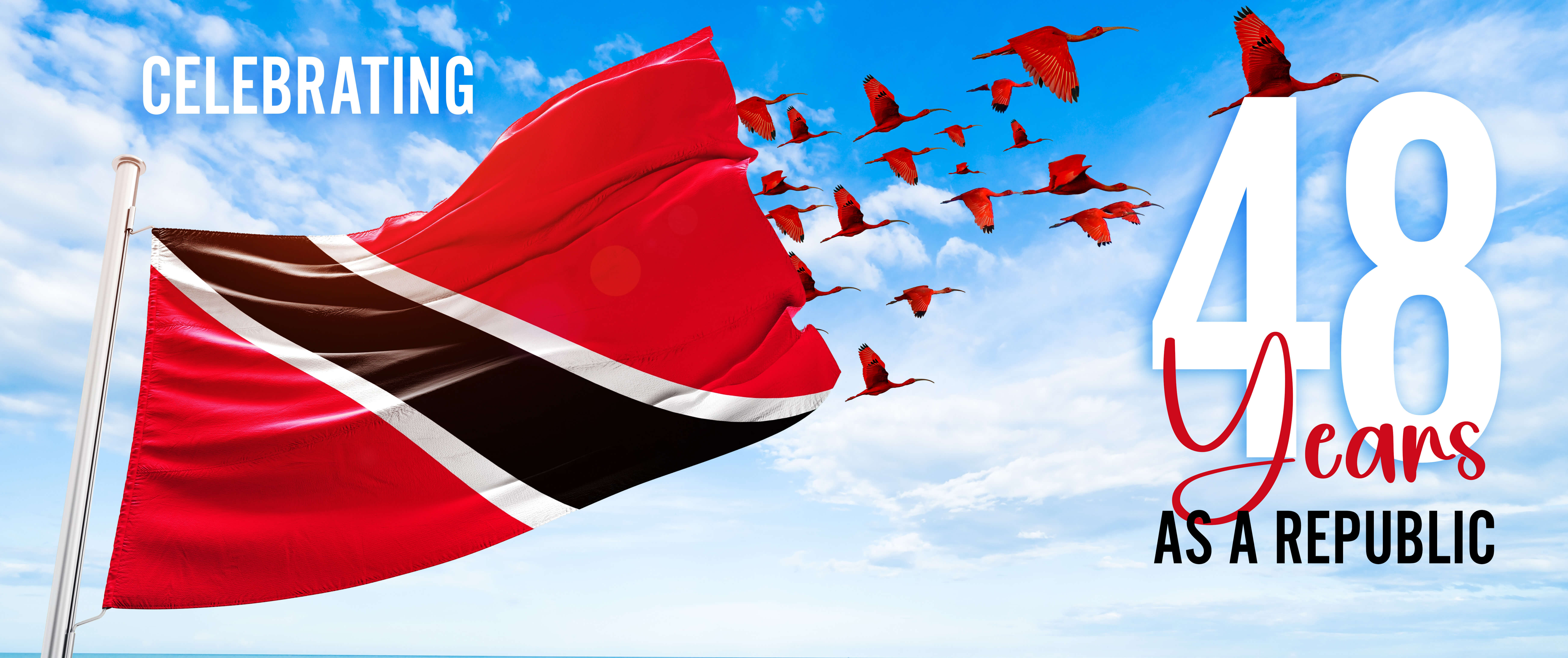Good morning.
It is the morning of day four of my five day work week in Tobago and already the staff of the Office of the President and I are debating whether we should return to Trinidad on schedule. Tobago, is very seductive. It has been an enlightening and extremely productive sojourn – this effort has proven to be quite worthwhile. I hope that it will be as gratifying for Tobago and Tobagonians as it has been for me.
While I recognise and celebrate our unitary statehood, I acknowledge that Tobago has its unique ethos, challenges, culture and viewpoints, and it serves me well as President to hear what Tobagonians and others who live in Tobago are doing, thinking and feeling and to hear it on the ground as I share the perspective of the late American President, Theodore Roosevelt who said “This country will not be a good place for any of us to live in unless we make it a good place for all of us to live in”.
The past few days have been filled with fruitful and informative interaction with citizens who were all keen to share their experiences, concerns and opinions and they may rest assured that not only did I hear, but I listened. It is hoped that the Office of the President will work from Tobago regularly. We must fully evaluate this first exercise including of course, a cost-benefit analysis, but I feel certain that we will continue to afford those on the island of Tobago, as much of an opportunity as their Trinidadian counterparts, to have access to the Head of State.
This Special Sitting of the Tobago House of Assembly is another and equally meaningful aspect of my visit to Tobago and I thank your Presiding Officer, Dr. Angus for her kind invitation to address you. You have been conducting the business of the people of Tobago for 39 years and it is a great privilege for me to witness the solemnity and dedication with which you carry out your legislative mandate to ‘make better provision for the administration of the island of Tobago and for matters connected therewith’.
You are the keepers of a long and chequered legacy, as the Tobago House of Assembly bears the distinction of being our nation’s oldest political institution. However, its first incarnation in 1768 and those which followed immediately thereafter did not consider the will nor cater to the well-being of all Tobagonians, but rather served the upper echelons of society, specifically the white, male, Christian ruling class. This exclusionary system was perpetuated even in joining the two then colonies when, despite internal opposition, Trinidad and Tobago were in 1889 united by an Order-in-Council.
Fast forward 250 years and the political landscape of the twin-islands has changed completely. Now, after a lengthy process of public consultations and debates, the Constitution (Amendment) (Tobago Self-Government) Bill, 2018 was presented to Parliament last year and is before a Joint Select Committee for evaluation. I trust that the outcome of the many years of discussions, debates and consultations will silence even the loudest and most critical of naysayers.
As you approach this seminal juncture, or maybe I should say we, as this matter has fundamental implications for all citizens of the Republic, it is prudent to take a step back and appreciate how much the THA has evolved.
From its original incarnation as an elitist, exclusive entity to its current model, which seeks to serve the people of Tobago with every available resource, the THA has undergone a sea change which has given Tobago its distinct voice in the national discourse and significant control over its affairs. But questions remain, how loud a voice and how consequential the control? This issue has been on the table for a long time. In 1977 former Chairman of the THA, Prime Minister and President ANR Robinson crystallised the argument in a speech delivered in Parliament, calling for greater autonomy for Tobago. One cannot be faulted for thinking that the matter has had a sufficient gestation period to give birth to a resolution acceptable to all. The trajectory of Tobago’s development depends on it.
But the THA has not been idle while it waits and has continued to develop mechanisms that allow for maximum participation in its affairs. A most interesting feature of your constitution is that any citizen of Trinidad and Tobago residing in Tobago is eligible to stand for office. So says the Tobago House of Assembly Act, 1980. I must confess that I took pattern and entertained a visit from a Trinidadian while here.
The THA has not always relied on legislation in order to introduce necessary, innovative initiatives. In 2012, when all the seats were won by one party and this Assembly was without a minority leader, you established a Public Interest Desk which provided a vital platform for dissenting views which otherwise would have gone unheard. This maturity of approach is indeed commendable and other jurisdictions could do worse than to take pattern.
The same maturity will be required to deal with the many challenges being experienced by Tobago today. Hard decisions have to be made about whither goest tourism. Barefoot or shod, Tobago must strategically position itself as a serious player in the global tourism industry. I have travelled to many countries with far less to offer by way of natural attractions than Tobago yet they are prominent on the radar of international travelers. They have made much of little and it would be a crying shame if Tobago with its abundance of natural appeal does not secure its fair share of the market.
The vexed question of the air and sea bridge looms large and is yet to be resolved to the satisfaction of all. Despite valiant attempts to provide reliable service between the islands one must admit that there is some ways to go before it can be described as optimal.
While flow is affected both ways, it is Tobagonians that feel the pinch. The full range of tertiary offerings, certain specialist medical services and visa applications all call for a visit to Trinidad with the attendant inconvenience and financial burden. Dependable transport between the islands will provide some degree of comfort.
Of course there are districts in Trinidad which may not have easy access to those services either, but Tobago residents start out at the disadvantage of having to factor in the cost of boat or airfare and possibly accommodation even before they face any common difficulties.
Not only does Tobago have its peculiar issues, but it also experiences many of the challenges facing its sister isle, which challenges must be confronted by the Tobago House of Assembly.
Reduced energy revenues, lowered foreign direct investment, lower export income and the increased cost of borrowing have affected your ability to deliver on projects and promises in a timely fashion. In recent years you have not been spared environmental problems which affect your lives and livelihoods, such as the invasion of sargassum seaweed and the decline in the health of coral reef communities and, although thankfully nowhere near the level in Trinidad, crime and violence are on the increase.
I am sure that Tobago is well able to meet these challenges. There is a rich human resource base that has been ever-present here and into which you can tap. As President, I will certainly endeavor to do my part. At the inception of my term, it was immediately apparent that the interests of Tobago had no dedicated voice on the Senate’s Independent Bench. That to my mind was a deficiency and so I was pleased to appoint Dr. Maria Dillon-Remy. Another daughter of your soil, Zola Phillips is on the reserve bench of temporary Independent Senators. I considered it a coup to appoint your Susan Craig-James as a member of the Police Service Commission and as I continue to seek out patriots to render service to the nation, be certain that my eyes scan both Trinidad and Tobago.
The Tobago House of Assembly is required to lead the charge and lead the change in Tobago and the mark of true leadership is the ability to surmount obstacles and limitations while holding fast to your oath and without sacrificing the tenets by which you stand. It is your duty to leave a rich legacy to those who will one day inherit this House and there is no doubt that you have the intention, capacity and commitment to do so.
I leave you with the words of American clergyman Charles E. Jefferson which I believe are apposite to the occasion. ‘Patriotism is a thing of the heart. A man is a patriot if his heart beats true to his country.’
I wish you the very best as you discharge your duties to the people of Tobago. May she truly grow more beautiful and may God bless our nation.
Thank you.







